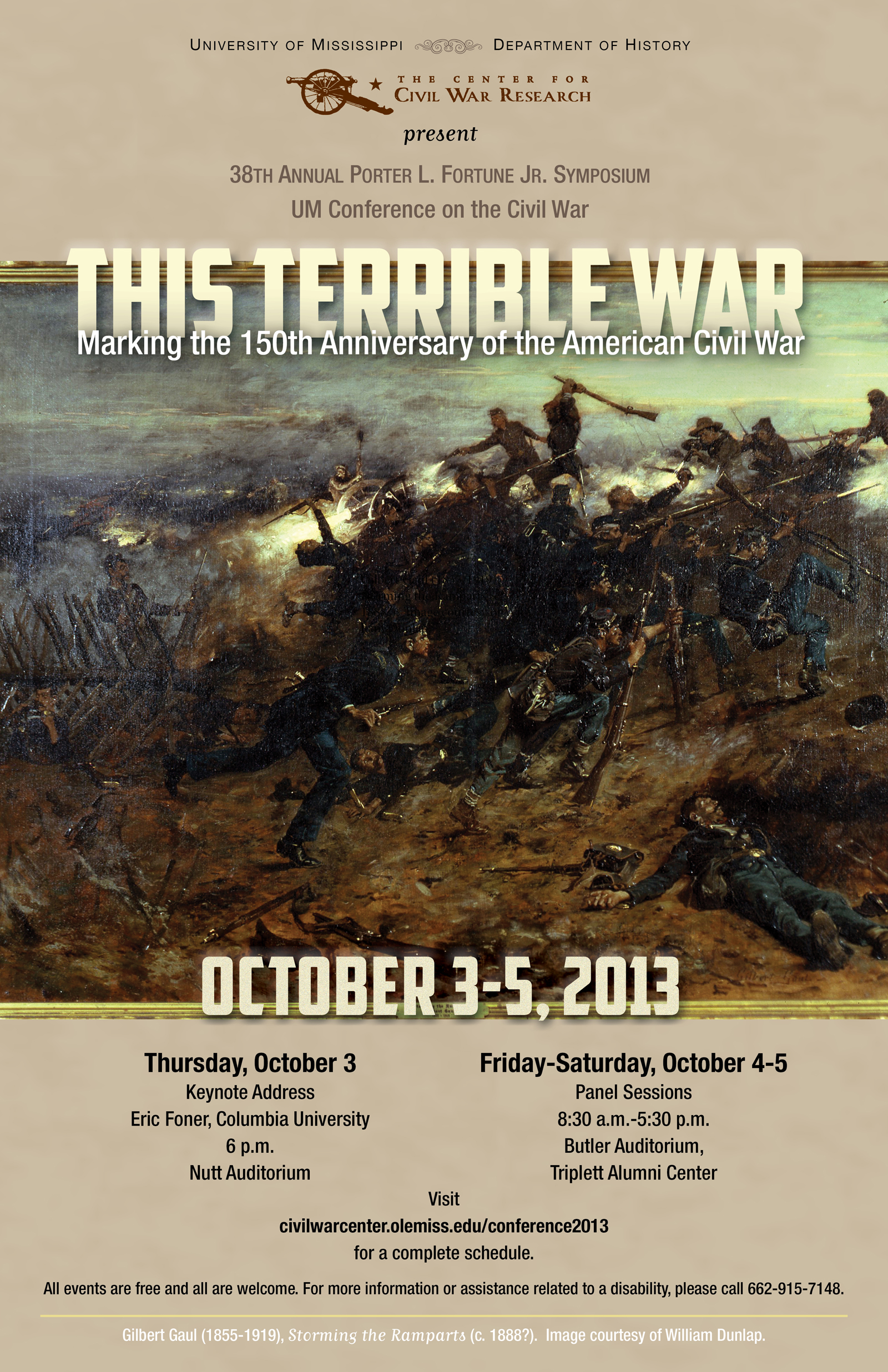
Thursday, October 3 – Nutt Auditorium
Keynote Address, 6:00
The Emancipation of Abraham Lincoln
Eric Foner, Columbia University
Friday, October 4 – Butler Auditorium: Panel Sessions
First Panel, 8:30-10:00: Contrabands of War
Were All the Freedpeople Political?: Rethinking the History of Emancipation
Jim Downs, Connecticut College
“On the Meeting Grounds:” Slave Religions in Refugee Camps of the Civil War
Abigail Cooper, Brandeis University
Second Panel, 10:30-12:00: International Response to War
Was “This Terrible War” This Terrible? A Global Comparative Perspective
Niels Eichhorn, Middle Georgia State College
An Act of Colonization: Danish American Negotiations Concerning “Laborers of African Extraction” and the Virgin Islands between 1860 and 1867
Anders Bo Rasmussen, University of Southern Denmark
The Lawrence Massacre of 1863, General Ewing’s Order No. 11, and European Press Opinion on Guerilla Violence and Reprisals in the American Civil War
Christopher D. Wilkins, William Jewell College
Third Panel, 2:00-3:30: Northern and Southern Women at War
The Political Identity of Union Women
Nina Silber, Boston University
“Enlisted for the War”?: Divided Loyalties among Atlanta’s White Women during the Civil War
Wendy Hamand Venet, Georgia State University
Fourth Panel, 4:00-5:30: Southern Civilians and Slavery in War
“These Negroes Are All the Property She Has:” White Slaveowning Women and the Pecuniary Destruction of Civil War
Stephanie Jones-Rogers, University of Iowa
The Politics of Slavery and Southern Nationalism Among the Yeoman Soldiers of Western Tennessee
Gary T. Edwards, Arkansas State University
Saturday, October 5 – Butler Auditorium: Panel Sessions
First Panel, 8:30-10:00: New Insights into the Military Conduct of War
“This is the Last Time I Shall Ever Leave My Family”: The Burdens of Soldiering on Union and Confederate Fathers
John Patrick Riley, Binghamton University, SUNY
“Justice Mingled With Kindness:” Missouri and the Union Army’s Hard and Humane War
D. H. Dilbeck, University of Virginia
Spurring on Victory: The United States Cavalry Bureau, 1863-1866
David J. Gerleman, The Papers of Abraham Lincoln
Second Panel, 10:30-12:00: Quantifying War
“Notorious and Palpable”: Francis Amasa Walker and the Demographic Impact of the American Civil War
J. David Hacker, University of Minnesota
The Sacred Debt: The Union and the Five-Twenty Loan of 1862
Franklin Noll, Noll Historical Consulting
Third Panel, 2:00-3:30: Interpretations of the War Presidents
“We Have No Need For Men, We Have Principles:” Jefferson Davis and the Confederate Cabinet
Geoffrey Cunningham, Louisiana State University
Triumph of a Railsplitter: Northern Masculinity in Lincoln’s White House
David Demaree, Kent State University
Fourth Panel, 4:00-5:30: Loyalty and Dissent in War
Northern Alabama Unionists and the Price of Dissent
Susan Deily-Swearingen, University of New Hampshire
Copperheads and Black Republicans: The Twin Snakes of Loyalty in Eastern Pennsylvania
Charles R. Welsko, III, West Virginia University
|

